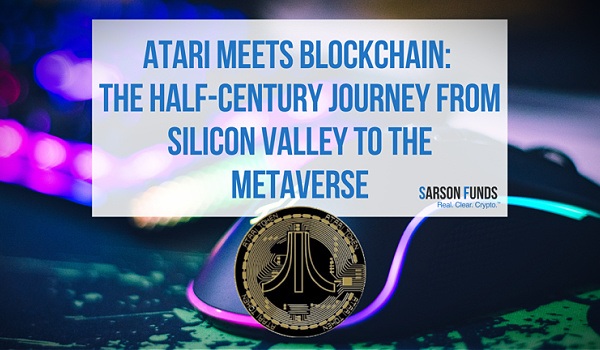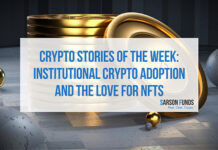By Nathan Frankovitz
Earlier this month, Atari restructured its business to create two separate divisions, Atari Gaming and Atari Blockchain. The announcement comes after years of development in the space, since Atari first publicly expressed its interest in crypto assets in early 2018.
In his foreword to the Atari Token Whitepaper, Atari CEO Frederic Chesnais points to the gaming industry’s progressive decentralization as support for the gaming giant’s strategic move. “Atari means ‘Revolution, Technology and Entertainment’. When I started to work on blockchain and cryptocurrencies, I immediately thought of creating a virtual currency that could be used in any video game.”, Chesnais wrote.
Launched in the fall of 2020, Atari Token ($ATRI) aims to “become the token of reference for the interactive entertainment industry”. The token’s first use-case is within crypto-casinos, where players can gamble in virtual blockchain-based games. Described by Reuters as “The ‘Metaverse’ Bet”, Atari has already initiated a two-year lease term on virtual land in Decentraland, a popular Ethereum-based virtual world. After licensing its own retro arcade, Atari celebrated its Decentraland Casino’s Launch Party with $10,000+ in prizes and a live set played by the platinum selling artist Dillon Francis.
With a growing economy of finite in-game lands, currencies, items, and services, Decentraland and its peers are blurring the lines between reality and virtual worlds. According to an article by Coindesk, an in-game competitor to Atari named Decentral Games began hiring for its virtual casino as early as February this year.
More broadly, Atari seems to subscribe to the zeitgeist for crypto assets demonstrated by the rapid growth of DeFi, or decentralized finance. Chesnais continues in his foreword, “Like many other people, Atari fully supports the idea of ‘finance without borders’. That is why the number of people actively using crypto-currencies is steadily growing and approaching the psychological mark of 50 million.” Indeed, unlike the privatization of profits in the classical free market, Atari’s Blockchain initiatives appear to embrace publicly-distributed, player-owned virtual assets.
Atari cites upcoming trends backing their investment in Atari Token, echoing narratives already seen driving DeFi. According to their Whitepaper, the number of people with access to the internet will quickly climb from 4.5 billion to 8 billion. Many of these internet newcomers will have less robust identification records than existing users. These “under-documented and/or underserved individuals” lack access to financial systems that offer improvement to their economic condition, which may be alleviated by the maturing DeFi ecosystem. Atari also cites diminishing hardware costs, rising rates of self-education, and the replacement of cost-prohibitive financial services with increasingly reliable smart contracts. Each of these narratives bolster Atari’s assertion for an overarching “Mega-Trend: The Emergence of Online Smart Platforms Offering the Future of Work.”
“What we anticipate is the explosion of online platforms that offer tasks through smart contracts, using cryptocurrencies as the utility token that acts as the conduit for value or the medium of exchange.”, says Atari. For those already following crypto asset trends, this is not a bold claim—it’s already the reality. The real question is, which tokens have the real “utility”? Further, which tokens’ prices, if any, will reflect value not just for the tokens’ utility, but also as a generally accepted “medium of exchange” derived from mass adoption network effects? With long-standing conflicts over which crypto assets best serve as money, Atari Token’s ambitions for utility beyond powering video-gaming platforms will not be realized overnight.
Overall, however, we think Atari Token is poised to make strides in the crypto ecosystem. With a long-term, people-first strategy loyal to the broader ethos of decentralization through blockchain, Atari’s leadership and brand reputation could make its $ATRI token an indispensable part of the quickly emerging gaming metaverse. Ultimately, crypto assets depend on community consensus. If Atari Token demonstrates effective governance, trust, performance, and integration while fueling next-generation gaming experiences the brand was once known for, the best may be yet to come for Atari’s legendary history.







